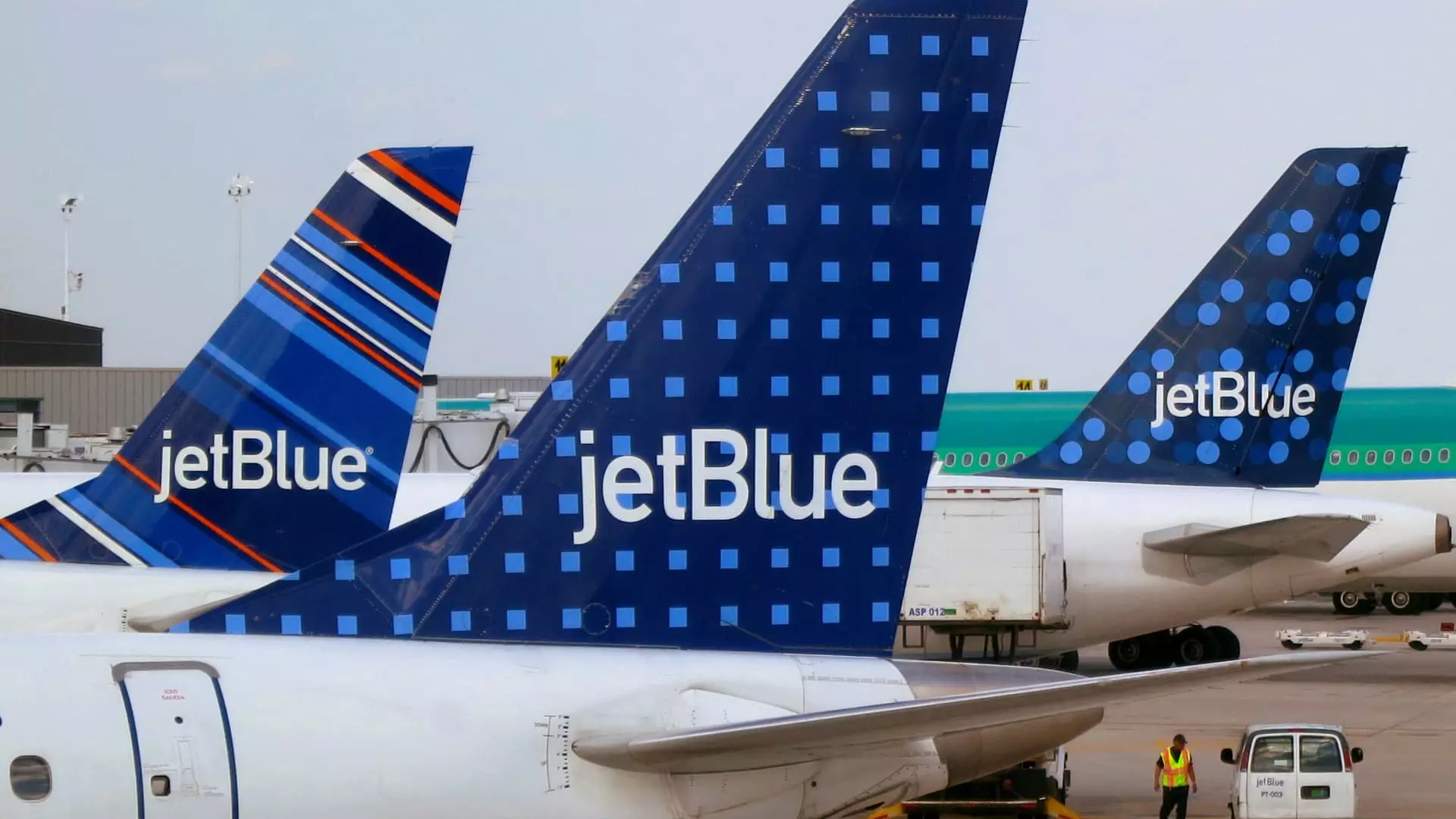Recently, the Department of Transportation (DOT) imposed a significant fine of $2 million on JetBlue Airways, marking a groundbreaking enforcement action regarding chronic flight delays. This unprecedented penalty serves not just as a slap on the wrist for JetBlue, but also as a stark warning to the entire airline industry concerning accountability in service quality. The fine arose from analysis indicating that JetBlue’s performance on four of its key routes fell woefully short of industry standards, highlighting the urgent need for enhanced operational strategies and regulatory oversight.
The routes in question spanned from JetBlue’s primary hub at John F. Kennedy International Airport to several destinations, including Raleigh-Durham International Airport, Fort Lauderdale, Orlando, and Windsor Locks, Connecticut. From June 2022 to November 2023, these flights were classified as chronically delayed. The DOT specified that a flight is deemed “chronically delayed” if it operates at least 10 times a month and is late on more than half of those occasions by over 30 minutes. Alarmingly, JetBlue accounted for over 70% of the delays on these routes alone, demonstrating systemic issues within the airline.
In this context, the term “chronically delayed” reflects a broader concern involving passenger experience and operational integrity. With flying being an essential mode of transportation for millions, any consistent failure to meet scheduling expectations undermines consumer trust and the overall credibility of the air travel industry.
Transportation Secretary Pete Buttigieg’s comments underscore the importance of realistic flight scheduling and the expectation that airlines must adhere to these benchmarks. The DOT’s investigation into JetBlue’s operational behavior reveals the growing pressure on airlines to meet not just customer expectations, but also regulatory standards. As the airline industry recovers from the disruptions of the pandemic, consumer patience is wearing thin, and government bodies like the DOT are compelled to take definitive actions against poor performance.
Part of the DOT’s investigations includes examining other airlines that may be operating under similarly unrealistic schedules. This suggests a potential shift toward stricter regulations and enforcement as the government seeks to ensure that all carriers operate sustainably and responsibly.
In the wake of the fine, JetBlue issued a statement asserting that the responsibility for air travel reliability extends beyond the airline’s control. The airline called for improvements in air traffic control (ATC) staffing and modernization of existing systems. This statement resonates with concerns raised not only by JetBlue but also by major competitors such as Delta and United Airlines. The idea is that an efficient ATC system is critical in mitigating delays and enhancing the overall flying experience for passengers.
JetBlue’s emphasis on the need for a more advanced ATC system reveals a broader misunderstanding of responsibility within the industry. While there is merit in addressing staffing and technology upgrades, airlines like JetBlue also bear a significant part of the burden when it comes to managing their own scheduling and operational reliability. It raises the question: how much accountability should airlines hold in the face of systemic challenges?
JetBlue’s case could establish a significant precedent regarding enforcement practices for airline accountability. With ongoing investigations likely to yield more scrutiny across the industry, airlines may need to reevaluate their operational strategies and consumer communications. The DOT’s actions could encourage airlines to enhance their internal management systems to prevent future violations.
Consumer trust in the airline industry hinges on transparent communication and reliable service. As airlines navigate the complexities of air travel logistics, the balancing act between operational efficiency and regulatory compliance will be critical. The $2 million fine act as a microcosm of a larger conversation about the future of air travel, one that prioritizes passenger satisfaction and realistic service capabilities.
While the DOT has taken a significant step in penalizing JetBlue, the airline industry’s response will play a crucial role in shaping the future landscape of air travel. How airlines adapt to this challenge will determine whether they can restore consumer confidence and maintain operational integrity in a highly competitive environment.

